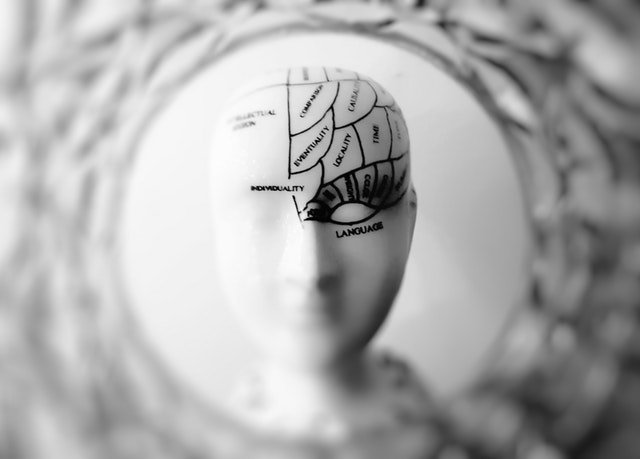Don't live under the impression that you have understood Parts of Speech and no longer need a look back to the concept. Mastering them means mastering the language; that is tough to declare!
It is easy to learn HOW to speak and write correctly. The reason is that we need around 2000 words for ordinary and regular conversation. Some people put this number at 1500. The mastery of just twenty hundred words and knowing where to place them will make us not masters of the English language, but masters of correct speaking and writing. Even that is a thing the millions of people are in need.
If you feel that you know what it is, but do not know HOW to Use that word - my friend - accept this bitter truth that you are yet to know WHAT a WORD is!
If this is the number that can make you marvel the listeners or readers, then what purpose is the Dictionary for? Is that a stock of words not to be used or that is just a product sold by the marketing conspiracy mission? We should know that nobody ever uses all the words of the dictionary. For that, we need to live for ages and even then we may fall short.
Oxford Dictionary has 273,000 headwords; 171,476 of them being in current use, 47,156 being obsolete words and around 9,500 derivative words included as subentries. The dictionary contains 157,000 combinations and derivatives in bold type, and 169,000 phrases and combinations in bold italic type, making a total of over 600,000 word-forms. (Source: Wikipedia)
There are 273,000 words in the OALD and the number with other dictionaries might also be around this. The fact is that the one-hundredth part of this will suffice for all our speaking and writing needs. We might object to this submission and express our ambition to look superior with words that demonstrate our knowledge or pedantry. It is always better to use the words that have stood the test of time, and old friends are always good friends.
“To use a big word or a foreign word when a small one and a familiar one will answer the same purpose, is a sign of ignorance. Great Scholars and Writers and polite speakers use simple words. Every person of intelligence should be able to use his mother tongue.” To accomplish this, understanding the usage of vocabulary through Parts of Speech is the first thing.
Maturity in composition and weight in words shall come with the passage of time only. We cannot expect a school going child to present a rhetorical marvel. However, the correctness in usage comes at the initial stage only. Once we turn adults and join the practice of language, it is difficult to learn the foundational aspects of grammar. Remedial Grammar is kept for those who commit errors in the usage of words. If our spellings are incorrect, we learned them. If our sentences are erroneous, we correct our usage of the words. This usage of words is taught by Parts of Speech.
As each language has its own alphabet, it also has its own grammar. For English, all the words we see are divided into nine classes or categories. These classes are called Parts of Speech. The dictionaries we use do mention the category of the word and let us know if a word is used in multiple categories of the Parts of Speech.
To simplify the understanding, we need to clearly know that Figures of Speech and Parts of Speech are two entirely different things. We have been reading and learning in since school age that metaphor, simile, alliteration, and hyperbole etc. Figure pertains to the beauty of the object or human. It is about how the presence or meaning has been carried. The way it is being composed or presented is defined under the Figure of Speech concept. This is about the art of the poet who deviates from the standard way of writing and creates beauty through deviation. There are contrasts and comparisons and personifications as well.
Read More: Literary Devices
But, in Parts of Speech, we talk of the way one drives the language. Does he manage to convey the message with correct usage of the verb, noun, conjunctions, and prepositions? The Sentence Structure or the syntax, particularly in prose writing, is the ground for the Parts of Speech.
We speak words. We speak names, actions, qualities, connectors, and exclamatory words as well. We speak and that is what we call a SPEECH. Hence, Parts of our Speech i.e. the words we use to make meaningful sentences are the PARTS of SPEECH! They are Noun, Pronoun, Adjective, Verb, Adverb, Preposition, Conjunction, Interjections and Article Determiners. These NINE Classes represent the whole Vocabulary in language. The words we speak are classified as one of these Parts. Remember that the same word can be a Noun and in the next sentence it can be USED as a VERB.
Take it as a piece of honest advice, without knowing the proper usage of each part of speech, you cannot dream of Correct Usage of English Language in Writing or Speaking. It is like getting a tool in hand but unaware or unskilled in the use. To make the best of a word, mastery over Parts of Speech is the must-have prerequisite.
Note: We have been learning and memorising Parts of Speech in a sequence led by NOUNS. I wish to insist that we need to put a small correction here. It should be the VERB that initiates an urge to EXPRESS something in Words (Spoken or Written). Hence, the primary thing is the VERB not the NOUN. Let the new order of PoS be: VERB - Adverb; Noun-Pronoun-Adjective; Prepositions-Conjunctions-Interjections-Article Determiners.
See this Tongue Twister: Can you can a can as a canner can can a can?
The use of the word ‘can’ in different roles of parts of speech is quite visible and adding to the twist in the sentence. The one who understands the class/category of the repeated CAN, shall not fail in the Tongue Twister Test!
Before we move to the next article on the detailed explanation of the 09 Parts of Speech, here is a childhood poem to remember them all:
Every name is called a Noun,
As field and fountain, street and town;
In place of the noun the Pronoun stands
As he and she can clap their hands;
The Adjective describes a thing,
As magic wand and shiny ring;
The Verb means action, something done-
To read, to write, to jump to run;
How things are done, the Adverbs tell,
As quickly, slowly, badly, well;
The Preposition shows relation,
As in the street, or at the station;
Conjunctions join, in many ways,
Sentences, words, or phrase and phrase;
!!!The Interjection cries out, ‘Hark!
I need an exclamation mark’
There is one more to be kept among winners
We know them as Article Determiners.
Through poetry, we learn how each
of these make up THE PARTS of SPEECH.
Ref: Pinterest
ImageSrc: PEXELS







